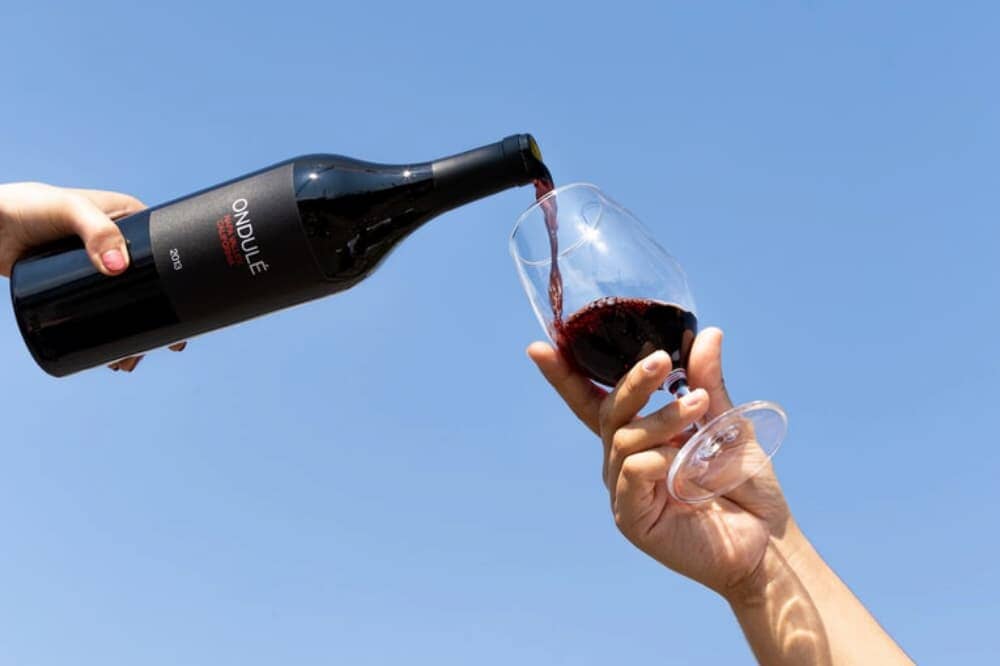Whether you are storing wine for personal use, for ageing, or you’re investing in your collection, you need to know how to store your wine correctly.
There are numerous factors that you should consider when storing your wine, and sunlight is an important one.
But how exactly does sunlight affect wine? Why should you keep wine away from sunlight? And what else should you consider when storing wine? Read on to find out.
Why Should You Keep Wine Away From Sunlight?
One of the most important things that you should consider when storing your wine collection is sunlight - specifically UV rays.
UV light can have a negative impact on the taste, smell, and appearance of the wine - causing what’s known in the wine world as light strike.
This is because the ageing process speeds up once exposed to high volumes of sunlight, causing unwanted chemical reactions.
The ultraviolet rays affect the wine’s naturally occurring riboflavin and pantothenic acid, causing unwanted reactions with the amino acids in the wine.
This results in the release of sulphur, which is part of the reason for the unpleasant taste and aroma of wine after sunlight exposure.
The triggered chemical reactions can ruin the natural flavours in the body of the wine, as well as the aromas that come with it. This can result in an unpleasant acidic or bitter taste.
When storing your wine, be sure to choose a space that’s dark and out of the way of direct sunlight.
If you decide to choose lighting in your wine storage space, ensure that they aren’t incandescent, as this can have a similar effect as sunlight.
To avoid this, ensure that all lightbulbs used in your storage space feature UV-protective coating.
This will help to prevent any premature ageing of your wine, allowing your wine to retain its freshness and quality.
You might think that wine coolers and wine cabinets are the best place for your wine - and this is true most of the time.
However, if the wine cooler has a glass door, you should always ensure that the glass door is UV-treated so no UV rays can harm your collection.
If you don’t have a wine fridge and aren’t interested in purchasing one, your best bet is to store your wine in a cool and dark environment where no sunlight can reach it.
Whether it be the back of a cupboard or in a basement, your wine should always be kept away from direct sunlight.
Wine Bottles
Many wine bottles have a dark green tint, which offers some UV protection. However, it’s still best to store your wine in dark spaces, even if the bottle itself is dark.
It’s typically bottles of red wine that have a dark tint to it - as red wines tend to be more full-bodied and feature more complex flavours and aromas.
White wine, sparkling wine, and rosé usually come in clear glass bottles - so be sure to store these away from sunlight.
In clear bottles, it takes just three hours of sun exposure to cause damage to the wine.
However, green bottles offer much more protection - taking around 18 hours for the wine to become damaged when exposed to UV light.
What Else Should You Consider When Storing Wine?
Despite being highly important, sunlight isn’t the only thing that you need to consider when storing your wine.
There are many things that can affect wine and how well wine ages during storage - and aside from sunlight, the main factors are temperature, humidity, and movement.
For tips on where to store your wine cooler, click here.
Temperature
One of the most important things that you should take into account in your wine storage efforts is temperature.
Despite being the most obvious factor, many people will still store their wine at warm temperatures.
Avoid storing your wine next to heated appliances such as ovens or microwaves, and try to use a thermometer to ensure that the temperature is correct.
A wine cooler is often the best choice for storing your wine, as it keeps your wine at a steady temperature and considers other wine storage factors.
Wine is best stored at between 11ºC and 14ºC. Storing your wine in temperatures above 15ºC can be harmful to your wine, as it can speed up the ageing process causing unwanted chemical reactions.
This ultimately affects the freshness of the wine, the taste, and the aromas - leaving an unpleasant sour taste. Especially if you’re ageing your wine, you don’t want your wine’s complex flavour profiles to deteriorate.
If you store your wine at temperatures too high, then your wine may develop an irreversible cooked taste, overpowering its natural flavours and aromas.
Although wine is best stored at cool temperatures, it’s important that you don’t accidentally freeze your wine.
This can not only damage the flavours of the wine, but damage the bottle and the cork.
When a cork freezes, it may push out of the bottle - leaving the contents exposed to oxygen, which is a wine killer.
Humidity
Another important thing to consider when storing your wine is humidity. The optimal humidity levels for wine storage falls between 55% and 75%.
Humidity levels above 75% can damage the bottle and labels - mould loves humidity, and may grow on the bottle.
High humidity levels can also cause the label to peel off, which is any wine collectors or investors nightmare.
Storing your wine in the right humidity levels is important - your collection needs a little humidity to keep the cork moist and steady in the bottleneck.
If the humidity levels drop below 50%, the cork may slip and expose the wine to oxygen.
If you’re unsure how to check humidity levels, either purchase a wine cooler that regulates humidity or purchase a humidifier for a larger wine storage space.
Movement
Movement is something that you should also consider when storing your wine collection.
Excessive movements or vibrations can affect the ageing process of a wine, resulting in bitter tastes and unpleasant aromas.
Especially with aged wine, avoid sharp or unnecessary movements when handling your wine, as it can damage the flavour profile.
Movement can prevent sediment from settling where they should, so ensure that you handle your wine carefully and your storage space doesn’t have vibrations.
Although movement is a key factor when it comes to your wine collection being damaged, direct sunlight is top of the list. The easiest way to prevent sunlight from sabotaging your wine collection is by keeping your alcohol in an efficient storage system designed by Avintage.
Avintage offers solid door storage cabinets, which help to prevent any light from getting in. Sunlight can not only ruin the taste of your wine but also alter both the aroma and appearance.
It’s essential that you keep your collections in a safe environment where your bottles will remain protected for long periods of time. Contact us to find out more about our Avintage products.

